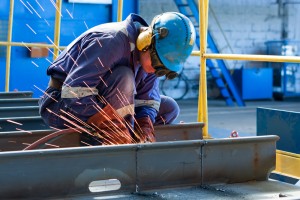The continent of Africa represents one of the regions in the world with the highest potential for socioeconomic growth and transformation. Possessing vast mineral deposits, an increasingly educated workforce and untapped oil and gas reserves, Africa has become one of the most important hubs for global commerce. However, as in many developing regions, growth can often outstrip urban living conditions. By reducing the economic and social disparity of working classes and giving them access to modern amenities, a twofold outcome can be achieved.
Primarily, an improvement in living and working conditions leads to internal stability and dramatically reduces the chances of conflict within the region. Secondly, this growth provides an excellent avenue for foreign investment, which can help assure continued progress. Nonetheless, some daunting challenges lie ahead, and it takes a keen insight to understand the logistics involved with such improvements. Olatunji Olowolafe (also known as Dr. Tunji Olowolafe), CEO of Deux Projects Ltd, and others in Africa are such innovators that find it important to examine some of the policies that need to be put in place to help lead Africa to improvement through urban renewal.

It is important to appreciate the sectors within Africa that need focus. These different facets can be separated into the fields of oil and gas, environment, education, health, power and construction. Investment in these areas must come from both internal and external sources, and the funds for this investment must come from both the private sector as well as national and internationally recognised banks and lending institutions. This monetary investment must then be coupled with knowledgeable consultancy firms that specialise in a wide arena of disciplines. Such firms must have an innate knowledge of property, energy and infrastructure solutions within a changing environment.
These companies must have the capacity for providing the necessary framework that will attract larger outside investors. Roads, bridges, power distribution and healthcare facilities are just a handful of examples of the challenges faced by such consultant firms. These projects need to be undertaken simultaneously with an influx of goods and services from other sectors. Commerce and trade must be fostered through relationships built between different regions and across international partnerships. Again, this represents a further ability to enhance the wealth and prosperity of developing regions and nations.
Apart from the internal logistical and infrastructure improvements necessary, a healthy level of export needs to be achieved to assure continued foreign investment. Appreciable levels can be reached through the process of transparency, quality assurances and low tariffs on exported goods abroad. The extra influx of capital in the urban economy will then serve as the fuel for on-going and future development projects for communities.
It is essential to employ respected and skilled corporations as the fundamental cornerstones for such urban renewal projects. These providers need to be capable of handling extensive building and construction projects while maintaining an air of fiscal responsibility and stakeholder accountability. For this reason, corporations such as Deux Project Limited of Nigeria have become highly sought after by regions that are currently experiencing the need for urban renewal and growth.
The proper implementation and execution of large-scale urban renewal projects represents one of the most challenging tasks for many African countries. Such efforts take time and cost money but with outside investment, combined with internal improvements, Africa is on the cusp of what can only be called a Golden Age.
Written by: Josephs interest in healthcare and infrastructure development began in college and developed through a period of volunteering in both Africa and South America. Now a professional writer, Joseph closely follows the work of Olatunji Olowolafe CEO of Deux Projects focusing on the long term gains in economic development that comes with improved healthcare standards and the infrastructure developments needed.

